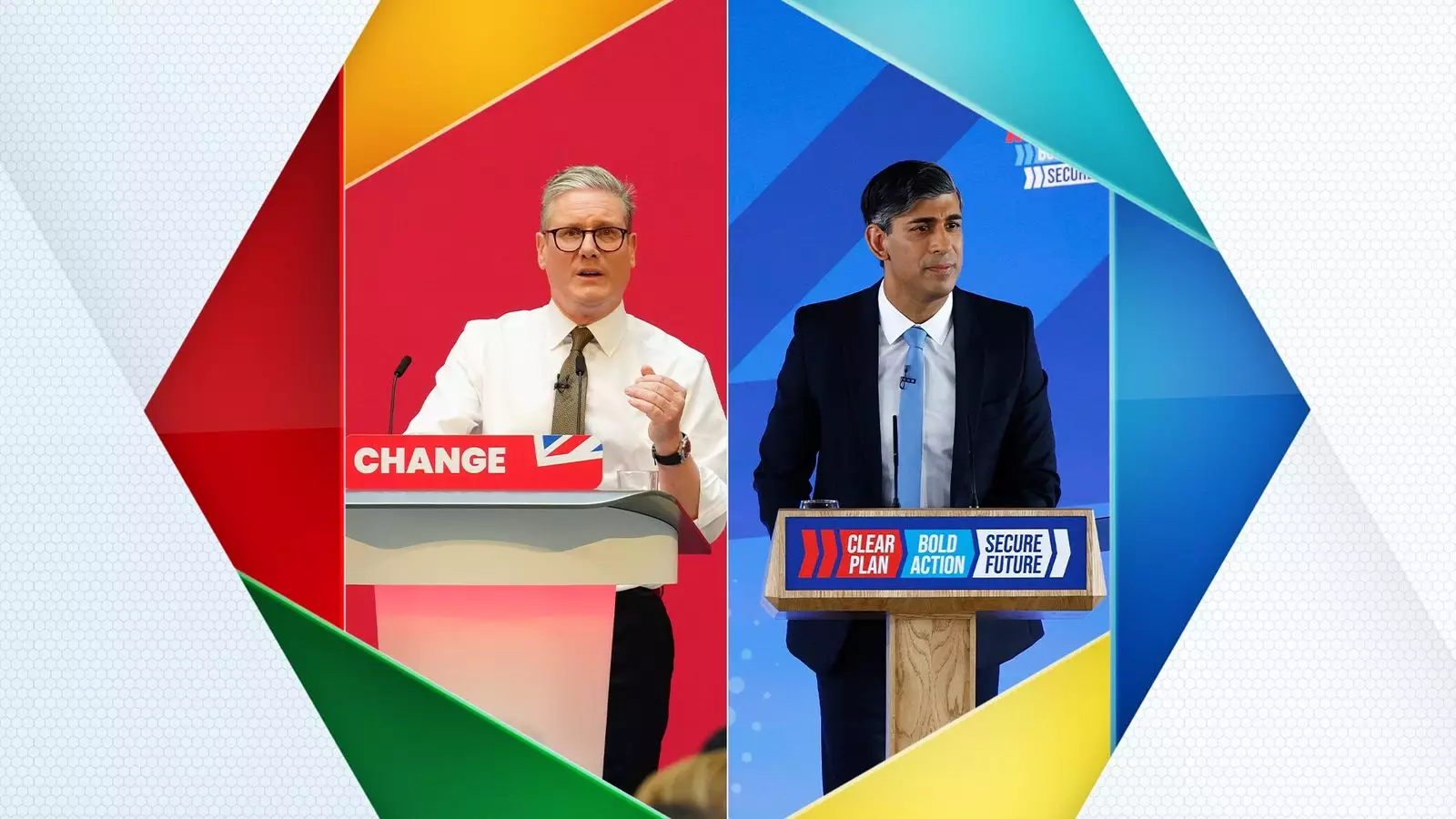The Institute for Fiscal Studies (IFS) has brought to light the lack of transparency surrounding the spending commitments of the major political parties in the UK. Voters are being kept in the dark about how these parties plan to fund their promises, with the IFS describing the information provided as “thin gruel”. The report released by the IFS criticized both the Conservatives and Labour for their failure to address the challenges they have identified, such as reducing NHS waiting lists. Paul Johnson, the director of the IFS, emphasized that without a clear plan, spending on public services may need to be cut in the next parliament, or taxes may need to be raised to prevent a rise in government debt.
Johnson pointed out the unprecedented pressure on government debt levels, which are currently at a 60-year high. The significant increase in debt interest spending, coupled with a growing welfare budget due to the COVID-19 pandemic and the aftermath of Russia’s invasion of Ukraine, has put immense strain on public finances. Johnson highlighted the rising health spending, the need for a growing defence budget, demographic changes, and the transition to net zero as major factors contributing to the financial challenges faced by the government. The combination of low economic growth, the lingering effects of the pandemic, and the energy price crisis has created a volatile situation that cannot be ignored.
One of the key criticisms from the IFS report is the absence of concrete tax proposals from both the Conservative and Labour parties. Johnson noted that neither party has put forth substantial plans to increase taxes, despite the looming financial pressures. The commitment to a £10 billion annual tax rise through freezes in personal tax allowances and thresholds has not been addressed openly by either party. The silence on potential tax increases, such as income tax, national insurance contributions, VAT, and corporation tax, has raised concerns about the transparency and honesty of the manifestos presented to voters.
In comparison to Labour and the Conservatives, the IFS identified the Liberal Democrats as having more expansive tax and spend policies. However, the report also criticized parties like Reform UK and the Greens for proposing unrealistic and unachievable solutions that only serve to complicate the political debate further. Johnson stressed that the choices ahead are difficult, with high taxes, escalating debt, and strained public services making decision-making increasingly challenging. The IFS urged for greater transparency and honesty from all parties when it comes to addressing the financial challenges facing the UK.
The IFS report sheds light on the critical need for political parties to be more forthcoming and honest about their plans to fund their spending commitments. The lack of transparency, especially regarding tax proposals, raises concerns about the future sustainability of public services and the overall health of the economy. As voters, it is crucial to demand clarity and accountability from political leaders to ensure a more informed decision-making process during elections.



Leave a Reply